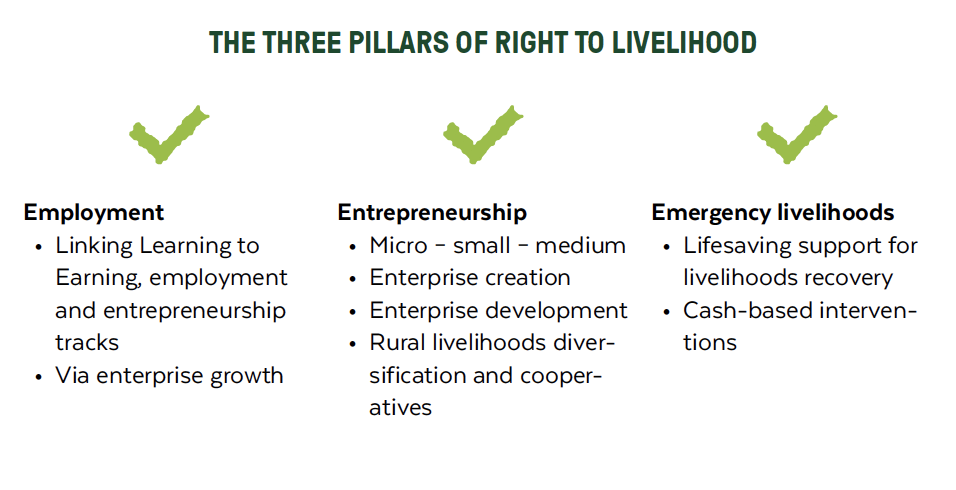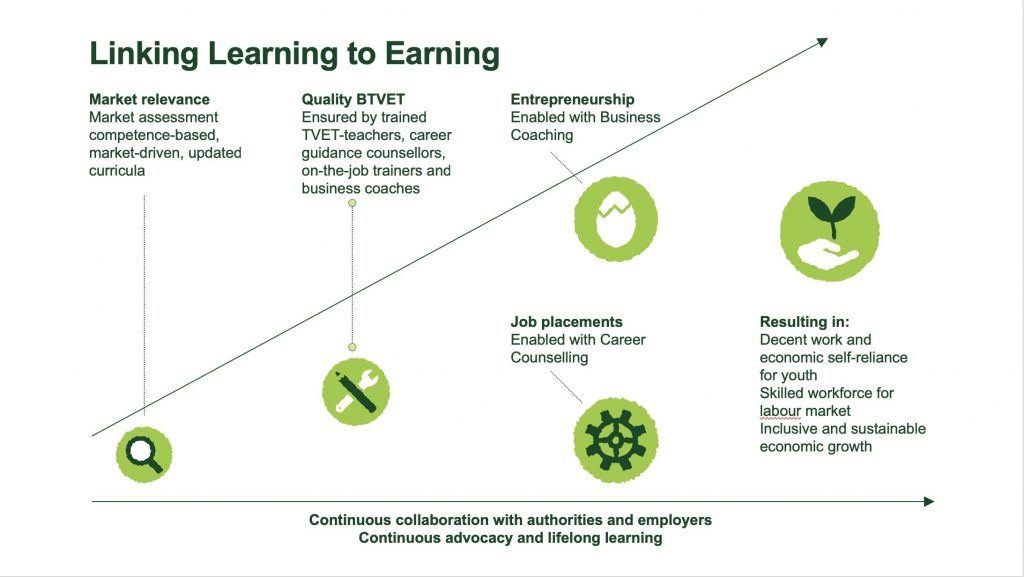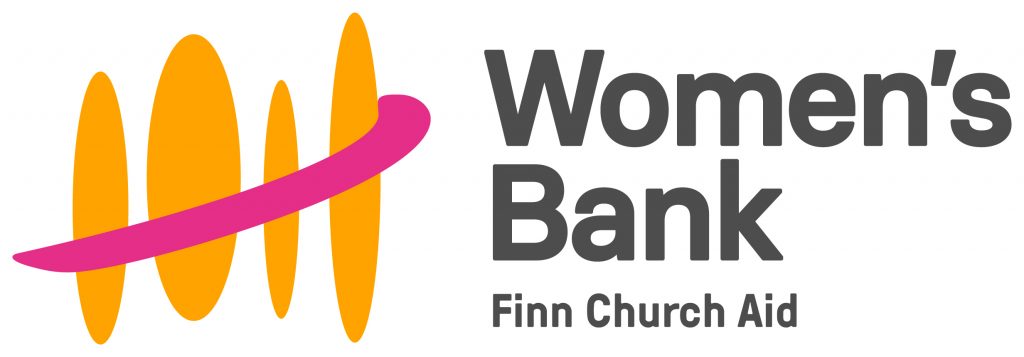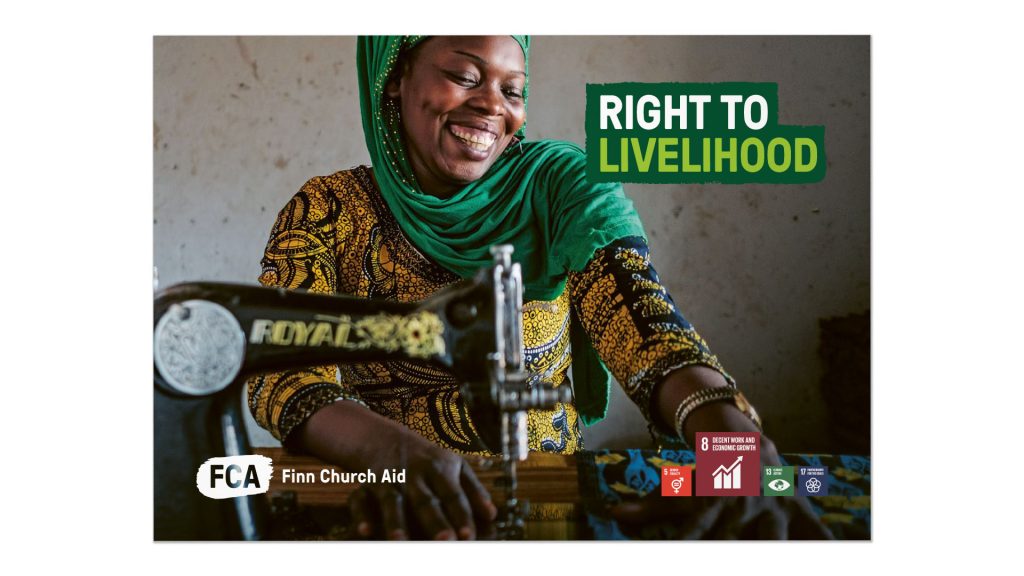Right to Livelihood
RighttoLivelihood
Everyone has the right to provide for themselves and their families, increase their well-being, and participate in developing the social, economic, and political situation of their societies as equal citizens.
By working for the Right to Livelihood, we want to ensure that everyone can live a dignified life.
Our objective is to reduce poverty by promoting inclusive, sustainable economic development, particularly through the employment of women, youth and refugees. We create new livelihood opportunities through entrepreneurship training, Technical Vocational Education Training (TVET) and saving groups and business cooperatives for women. We focus on both rural and urban areas in Africa, Asia and the Middle East.
We work for food security, particularly by supporting sustainable smallholder agriculture that enables families to fulfil their own needs and deliver their surplus to the market in exchange for a decent income.
In developing countries, Small and Medium-sized Enterprises (SMEs) generate most of the jobs, which is why our projects support the private sector in all our programme countries, including the most fragile states. Investments in sustainable SMEs boost the long-term objective of generating economic growth.
FCA also provides life-saving assistance for rapid livelihoods recovery in emergencies, for instance, through cash transfers that support refugees, internally displaced people and returnees in rebuilding their lives.

Linking Learning to Earning
FCA’s Linking Learning to Earning (LL2E) approach enables youth and young adults to become economically self-reliant and contribute positively to social cohesion.
We offer paths from vocational education to gainful employment and entrepreneurship to both young women and men. We work in close collaboration with training providers, policy-makers and employers to ensure educational quality and market relevance of the skills acquired.
Career guidance and counselling, on-the-job placements, job-seeking support and business start-up support form the core of the service portfolio designed to smoothen the transition from education to working life.

Creating enterprises and employment for decent living
We engage in entrepreneurship and employment creation to promote equality of opportunity and decent work for women and youth. We specialise in women’s entrepreneurship and promote income opportunities for refugees in rural and urban environments.
We offer business and technical skills and access to a wide range of essential business development services to entrepreneurial individuals, producer groups and cooperatives. Financing, market and value chain development, and networking with private and public sector actors are part of our programming.
 69 %
69 %
In 2020, we calculated that 69 % of Syrian refugees in Jordan who had attended entrepreneurship training were earning income from their business six months after the FCA training.
Promoting sustainable economic development
We work to strengthen the motivation and capacity of different level duty-bearers to promote inclusive livelihood-related government services, policies and programmes.
We engage in advocacy and campaigns for inclusive access to livelihood assets and services.
Where governments are unable to provide for the basic needs during a crisis, we help to ensure that disaster-affected people have access to essential life-saving assistance.

The FCA affiliated Women’s Bank provides us with a unique pool of expertise over a wide variety of business-related fields for women’s economic empowerment and entrepreneurship. Women’s Bank is a charity fund and a volunteer network supporting women’s entrepreneurship and income generation in developing countries. FCA administers the Women’s Bank fund and implements the work.

FCA Investments (FCAI), 100% subsidiary of FCA, is an impact investor specialising in developing countries and fragile states. FCAI has strengthened the Small and Medium-sized Enterprise dimension in FCA’s work. We actively seek synergies between impact investing and more traditional livelihoods programming, specifically in the areas of value-chain development and employment.
